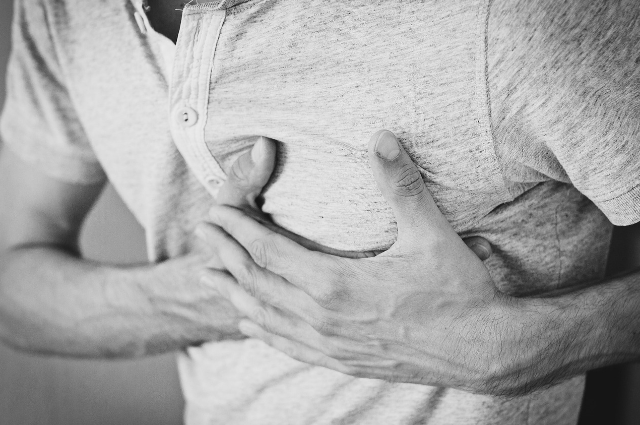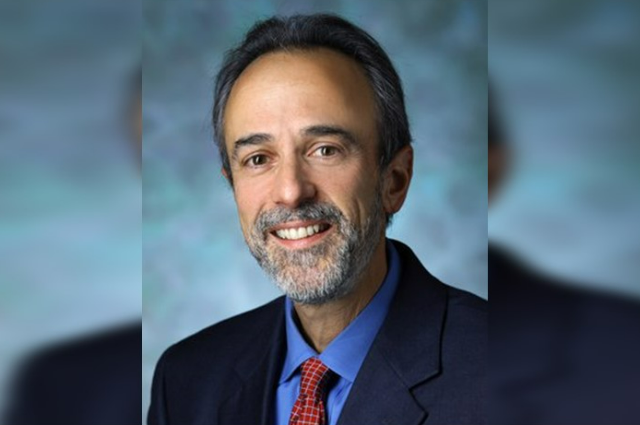
Image by Pexels from Pixabay
As per considering the situation,
In the present scenario, depression has a hard impact on our generation. As per measures, depression patients increase day by day. It is the most important topic for discussion. Depression is generally more common in women and it also causes Heart diseases like heart attacks we should concern about it because this condition is mainly found in youngsters and is not normal. Let's take a look at it, and how it affects a person.
What is Depression??
Depression means different things to different people. Depression can be a symptom (as when a person says, ‘I feel depressed’), a sign (when someone observes, ‘he looks depressed’), or a diagnosable disorder. When we diagnose depression, we mean a disorder of sufficient length, with specific symptoms and signs, that substantially interferes with a person’s functioning or that causes great personal distress or both.
It is important to separate depressive disorders from everyday ‘blues ‘or sadness, which are not depression. People with the blues or normal grief may experience short-lived symptoms of depression but usually continue to function almost normally and soon recover without treatment.
Symptoms of depression
- Irritability
- Mood swings
- Restlessness
- Short temper
- Uncontrollable
What is a Heart attack?
A heart attack occurs when the flow of blood to the heart is severely reduced or blocked. The blockage is usually due to a buildup of fat, cholesterol, and other substances in the heart (coronary) arteries. The fatty, cholesterol-containing deposits are called plaques. The process of plaque buildup is called atherosclerosis.
Symptoms of Heart attack
Symptoms of a heart attack vary. Some people have mild symptoms. Others have severe symptoms. Some people have no symptoms.
Common heart attack symptoms include:
- Chest pain that may feel like pressure, tightness, pain, squeezing, or aching
- Pain or discomfort that spreads to the shoulder, arm, back, neck, jaw, teeth, or sometimes the upper belly
- Cold sweat
- Fatigue
- Heartburn or indigestion
- Lightheadedness or sudden dizziness
- Nausea
- Shortness of breath
How Depression and Heart Disease Relate to Each Other
Depression and heart disease are among the most disabling diseases we face. They are both very widespread among the general population and often occur simultaneously in the same individual.
There is thought to be a two-way relationship between heart disease and depression:
- A percentage of people with no history of depression become depressed after a heart attack or after developing heart failure. And people with depression but no previously detected heart disease, seem to develop heart disease at a higher rate than the general population.
- It is somewhat hard to prove that heart disease directly leads to the development of a first-ever episode of depression. That is because some people who have had previous episodes of depression may not have it formally diagnosed until they see their doctor for heart problems.
“What we can say with certainty is that depression and heart disease often occur together,” says Dr. Roy Ziegelstein, vice dean for education at the Johns Hopkins University School of Medicine. “About one in five who have a heart attack are found to have depression soon after the heart attack. And it’s at least as prevalent in people who suffer heart failure.”
Psychological Impact of a Heart Attack
- Attitude and mood
- Sense of certainty about the future
- Confidence in one’s ability to fulfill the roles of a productive employee, mother, father, daughter, or son
- Feelings of guilt about previous habits that might have increased the person’s heart attack risk
- Embarrassment and self-doubt over diminished physical capabilities
Heart Disease and Depression in Women
Depression is generally more common in women than in men, so women with heart disease are more likely to develop depression. Heart disease tends to affect older individuals, and approximately one-third of women recovering from a heart attack live alone, with no immediate family member or spouse to turn to for physical and emotional support.
“It’s important for all of us as healthcare providers to recognize that while we can’t necessarily change someone’s living situation or stress level, we can recognize their unique circumstances,” says Ziegelstein. “We can work with our patients on this individual level to help them cope with life in healthier ways.”
Roy Charles Ziegelstein, M.D
- EXPERTISE
Cardiology, Cardiovascular Disease, Cardiovascular Medicine, Coronary Care Unit, Depression in Heart Disease, Heart Disease, Ischemic Heart Disease, Stress Testing ...
- RESEARCH INTERESTS
Depression in patients with heart disease; Mechanisms linking post-MI depression to increase mortality ...
Challenges of Recognizing Depression Symptoms
Heart disease and depression often carry overlapping symptoms such as fatigue, low energy, and difficulty in sleeping and carrying on the daily rhythms of life. So it’s not surprising that sometimes symptoms of depression are thought of by the patient, the patient’s family, and the cardiologist as being due to heart disease.
Many members of the medical community have stressed the importance of having patients, families, and physicians gain a greater awareness of the prevalence of post-heart attack depression. Physicians need to understand the importance of treating depression, since it is treated differently from heart disease.
Meeting this challenge can result in a vital communication between patient and physician that can start with something as simple as, “I wonder if what I’m feeling is from depression.”
Heart Event Recovery and Depression: Types of Support
Individuals recovering from a heart attack or other serious cardiac event can find many types of support. These include cardiac rehabilitation, social groups, and more specialized evaluation and treatment by psychologists, psychiatrists, and family also
- Cardiac rehabilitation – You can find supervised forms of exercise in many clinical exercise centers around the country, including Johns Hopkins. Your closely monitored program may include an activity and nutrition plan specifically developed for heart attack recovery. Studies have shown that returning to normal activity and seeing the progress of other people recovering from a heart attack significantly improves mood and confidence.
- Social support – It’s natural to withdraw and lose social confidence after a heart attack. But according to some studies, making an extra effort to re-engage and socialize with friends can help you return to the person you were before, which can be vital to heart attack recovery.
- More formal forms of support – Sometimes going back to a normal life after a heart attack requires the guidance of a psychiatrist, psychologist, or psychiatric social worker. Many milder forms of depression can be successfully treated by behavioral or “talk” therapy, either one-to-one or in a group of heart attack recovery patients. For some, depression symptoms may require antidepressant medication.
Relationship Between Mood, Heart Disease, and Heart Attack Recovery
- In depressed heart attack patients, decreased motivation to follow healthy daily routines can result in skipping important heart medications, avoiding exercise and proper diet, and continuing or intensifying smoking and drinking habits.
- Individuals with depression can also experience changes in their nervous system and hormonal balance, which can make it more likely for a heart rhythm disturbance (called an “arrhythmia”) to occur. The combination of depression and a damaged heart (from a heart attack), seems to make people particularly susceptible to potentially fatal heart rhythm abnormalities.
- People with depression may have uncommonly sticky platelets, the tiny cells that cause blood to clot. In patients with heart disease, this can accelerate atherosclerosis (hardening of the arteries) and increase the chance of heart attack. Some studies show that treating depression make platelets less sticky again.
Effect of a Positive Mental State on Heart Disease
Conclusion
As per the overall view, it is proved that depression can lead to heart attack-like disease. As per Roy Charles Ziegelstein, M.D. report we can easily relate depression and heart attack. We need to concern about this because this is not a normal situation.
As per statistics, it is measured that almost more than millions of people are suffering from depression, and many people are suffering from heart attacks also just because of their depression. Depression and Heart Attack are directly proportional to each other. Heart attack can increase depression and depression can increase heart attack.
We should support the patient suffering from this kind of disease by giving them proper treatment and therapy.
In our mental hospitals, proper care is provided to depressed patients so that they cannot claim heart attack like problems and also need to give some therapy which is possible for us like talk therapy to depressed patients.
To make our generation secure we need to control this problem.
. . .
Resources:
- https://www.emoneeds.com/depression
- https://manntalks.org/depression/symptoms-and-causes?
- https://www.mayoclinic.org/diseases-conditions/heart-attack/symptoms-causes/syc-20373106
- https://www.hopkinsmedicine.org/profiles/details/roy-ziegelstein
- https://www.mayoclinic.org/diseases-conditions/depression/in-depth/depression/art-20045943
- https://www.hopkinsmedicine.org/health/

